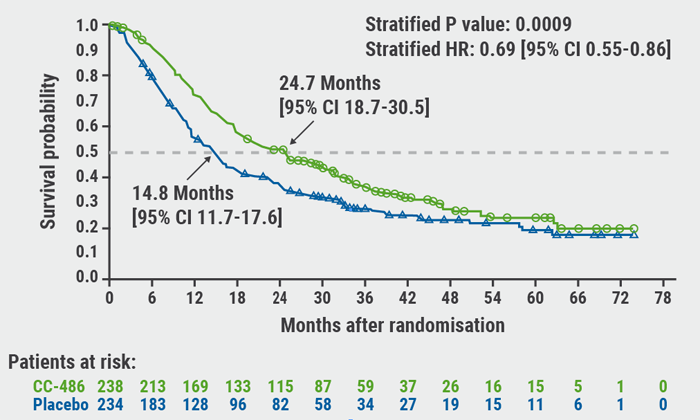The guideline, based on the NCCN Guidelines for Pediatric ALL addressed to clinicians, covers the basics of ALL and all aspects of its testing and treatment. It is available from the NCCN's website (https://bit.ly/36E7FOu).
The diagnosis of ALL relies on bone-marrow biopsy, but numerous other tests are necessary to check for signs of disease and how well the organs are working. These can include blood tests, spinal fluid tests, and imaging that could include CT, MRI and/or PET scan.
Genetic testing can be used to identify specific changes associated with ALL, and some of these mutations can be targeted with specific therapies. Not all mutations are inherited from parents; some develop spontaneously.
Treatment for pediatric ALL can include chemotherapy, steroids, targeted therapy, immunotherapy, radiation therapy and bone-marrow transplant, as well as participation in clinical trials investigating the effectiveness of new treatments.
Not all patients will receive the same treatment, the guideline notes. Instead, therapy is individualized based on the specific type of ALL and the unique presentation of the disease in a given patient.
Supportive care is also an important part of treatment. It relieves symptoms caused by cancer and its treatment, optimizes quality of care, and identifies and treats side effects that can occur months or years after treatment has ended.
The phases of treatment include induction, which aims to achieve complete remission; consolidation, which is needed to kill any cancer cells that might remain after induction; and maintenance, whose objective is to lower the risk of relapse.
The guideline offers several tips that caregivers can use to prepare the child for treatment: remain relaxed and calm; explain what to expect; use simple language; encourage questions; answer questions truthfully; and be comfortable saying "I don't know."
Several sections address the specific treatments for patients with Philadelphia chromosome-negative B-cell ALL, Philadelphia-chromosome-like B-cell ALL, Philadelphia chromosome-positive B-cell ALL, T-cell ALL, and infant ALL.
Especially useful are lists of questions to ask doctors about diagnosis and testing, treatment options, clinical trials, stem-cell transplants, side effects, survivorship and late effects, and the doctors' experience.
The guideline is endorsed by Alex's Lemonade Stand Foundation, Be the Match, CancerFree Kids, Pediatric Cancer Foundation of the Lehigh Valley, and The Leukemia and Lymphoma Society.
NCCN did not respond to a request for comments.
By Reuters Staff
SOURCE: https://bit.ly/30BM4Cq National Comprehensive Cancer Network, online September 23, 2020.
Posted on
Previous Article
« Study helps gauge long-term risks for women with DCIS by treatment Next Article
New biomarkers useful for preventing, managing acute kidney injury »
« Study helps gauge long-term risks for women with DCIS by treatment Next Article
New biomarkers useful for preventing, managing acute kidney injury »
Related Articles
December 15, 2021
Novel immunotherapy for cancer takes cue from transplant rejection

© 2024 Medicom Medical Publishers. All rights reserved. Terms and Conditions | Privacy Policy
HEAD OFFICE
Laarderhoogtweg 25
1101 EB Amsterdam
The Netherlands
T: +31 85 4012 560
E: publishers@medicom-publishers.com

